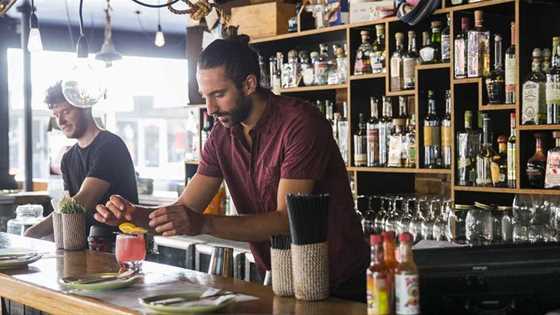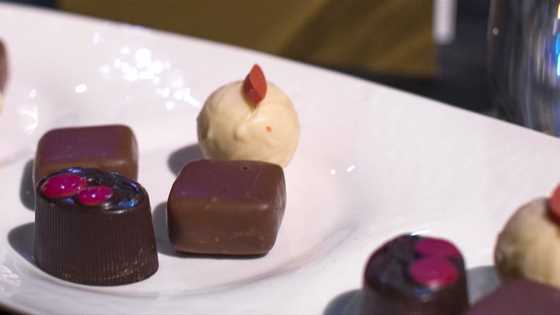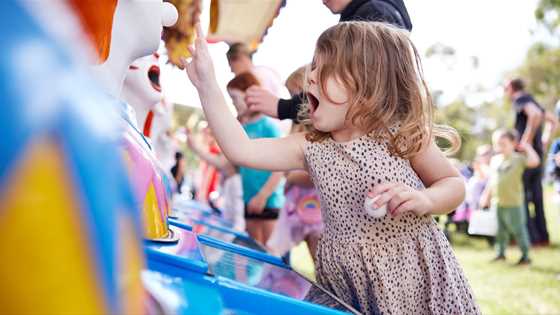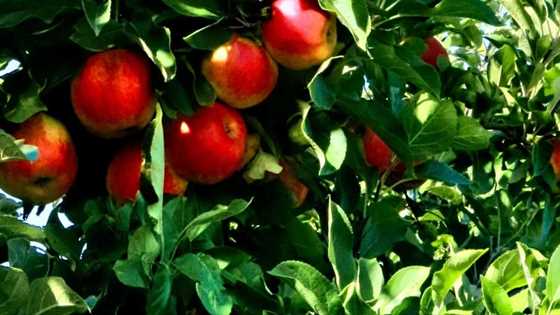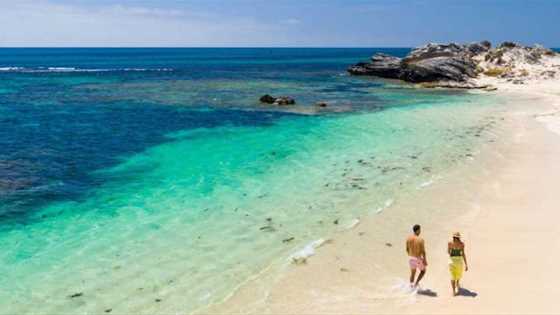It's not only food that's enjoying a surge of interest in organic and chemical-free options – it's time to get into natural wines.
In Western Australia, we're eating differently. Like much of the western world, as we learn more about where our food comes from and how it was raised, our diet is becoming more compassionate and sustainable. 'Organic' is now a part of our everyday vocabulary; we're packing out our state's ever-growing number of farmers markets; and we're nosing into the private lives of the foods we purchase, demanding to know what steps were taken to get them from farm to table.
If the foodie movement is marching to a more home-grown, chemical-free beat, then wine too is experiencing a revolution. A new wave of West Australian winemakers is throwing out the winemaking rulebook and getting grape to glass in a way that expresses the land, the vintage, and the grapes themselves, working as honestly as possible – and almost entirely without chemicals.
Unofficially (as yet, this style of winemaking has no regulating body) the term used within the industry for the kind of wines to come from this ultra-hands-off approach is 'natural'.
Natural winemaking is a philosophy that has spread over the past few decades from the vineyards of northern France to nearly every major winemaking country in the world. Dozens of wine bars and restaurants across the globe pour only natural wines, while hundreds more – including several in Perth – feature them heavily. There are natural wine festivals in Italy, France, Britain, and now Australia (Rootstock Sydney). Online, it has become one of the most talked-about topics in the wine blogosphere, causing more heated debates than any other category.
So why all the fuss? At the most basic level, it's because the philosophies behind natural wine hit at the core of what has made the modern wine industry tick for several decades.
Australia built its winemaking reputation on making impeccably clean, correct, and consistent wines. The entire Australian wine show system is based on the concept that there are technically correct wines and there are faulty wines. In this vein, Australia has made some wonderfully long-lived, travel-friendly, world-class wines.
Natural winemakers, however, believe that by focusing so heavily on correctness and consistency, winemaking techniques can sometimes prevent the honest expression of site, grape and vintage. There are 58 legal additives allowed in Australian winemaking (despite never being listed on the label, other than the vague 'contains sulphites'), and by including any number of them the wine becomes a creation of the winemaker. In natural wines, the winemakers just let the grapes do their thing.
It is generally believed that natural wines should be made from grapes grown organically or biodynamically (an holistic form of organic farming that is carried out in harmony with the lunar cycles). In the winery, the wines should ferment on their own yeasts and nothing should be added to them except a dash of sulphur before bottling if necessary. Wines are bottled unfiltered and unfined (and as a result can sometimes be slightly cloudy in appearance), while new oak is generally rejected because of the flavours it imparts on the wine, as are any other techniques that significantly alter the wine's make-up.
However, making wines without the usual additions is chancy: natural wines can range from wild and funky to very 'normal' in style. Given their low levels of preservatives, they are often made in a 'drink now' style, and can be highly gluggable, but some can age for years.
And that's the thing with natural winemaking – it goes hand-in-hand with experimentation. Many natural winemakers play with unusual blends, skin-contact whites (called 'orange' wines), and alternative fermentation and ageing vessels like clay amphorae and concrete eggs. Also, because this type of farming and winemaking is labour intensive, natural wines are almost always made on a small scale.

While the number of winemakers producing this kind of expressive and soulful drink is growing around the country, in Western Australia the movement is only just gathering speed. That said, even in WA's most famed and traditional region – Margaret River – you'll find several winemakers using natural methods.
On the edge of the Wilyabrup subregion, Ben and Naomi Gould of Blind Corner winery live among their biodynamically farmed vines and next door to their tiny winery, and use foot stomping, an old basket press, and a concrete egg to make their natural wines.
"When we first started, we had no money to buy fancy yeasts and tannins so we used what we had, which was time," says Ben. "But also, the only way we could make something no one could copy was to let the vineyards speak for themselves. If all Margaret River producers use the same oak, tannins and temperature control, we're all making the same wine."
While Ben and Naomi have a second-tier range called Two Brothers, their most natural and experimental wines fall under the Blind Corner label. In the mix, there's a wonderfully appley, biscuity sparkling chenin blanc, and a partially air-dried sauvignon blanc, wild fermented in old oak barrels.
"I see it as a challenge to make pure, clean wines without the packet fixes I have relied on in the past," Ben says.
Sarah Morris and Iwo Jakimowicz, who form Si Vintners near Witchcliffe, brilliantly demonstrate with their diverse range that there can be a natural wine for everyone. Despite very low yields of grapes from their 36-year-old biodynamically farmed vines, they have created wild and wonderful small batch wines like the Sophie rosé (wild fermented in a concrete egg from old pinot noir vines), Chincheclé (aged in an egg under a layer of flor yeast, like a dry sherry), and their newly released Lello (a skin contact 'orange' chardonnay). Halcyon, the company's upper tier wines (a chardonnay and a cabernet) are more austere and polished. Sarah and Iwo also have a label in Spain, Paco & Co, which produces two unmistakably Spanish wines from single plots of ancient Grenache vines.
Late last year – and completely out of nowhere – an unheard-of wine snapped up the most coveted awards at the 2013 Margaret River Wine Show, including the prestigious Best Red Wine of the Show. And it was made along natural lines. The wine was Cloudburst's 2010 cabernet sauvignon, and the win shocked everyone – even the winemaker.
"I was the butt of jokes up until the night of the show," says Will Berliner, a native New Yorker and one-time macrobiotic restaurant owner turned documentary filmmaker, with a science degree from Yale.
Originally planning to plant avocado trees to block the view of Caves Road when he bought his Wilyabrup property with his Aussie wife in 2004, Will was instead talked into planting vines. And he's never looked back.
Cloudburst wines are made naturally and in tiny quantities (less than 5000 bottles total), all from Will's tiny plot of unirrigated biodynamically farmed vineyards. The range consists of a poised and complex chardonnay, and the broody, slinky aforementioned cabernet sauvignon, with a malbec set to be released this year. They're just now becoming available in Australia (until recently, Will was selling exclusively to top restaurants around the USA), and at $200 for the chardonnay and $250 for the cab, they're not cheap. Will, however, seems to have no problem selling them.
Despite his very hands-off approach, however, Will prefers not to be labelled as 'natural'. "I'm not making any declarations. I'm aiming to make the best expression of my grapes I can."
In the hottest wine region in WA, the Swan Valley, meanwhile, you'll find one of natural wine's biggest surprises. There, Alon and Jodi Arbel at Bella Ridge are making textured, oxidative, and long-lived wines from their 65-year-old unirrigated, organically grown vines.
"This is everything you learn not to do as an Aussie winemaker," says a cheeky-grinned Alon, waggling his cloudy unsulphured rosé in the air.
Bella Ridge's large range of wines includes a wonderful chenin blanc, a semillon, viognier, barbera, and a tempranillo, all made by employing techniques like lengthy ageing in tanks and older barrels. The resulting wines compare, quite incredibly, to those from ultra-traditional producers in Europe.
As well as those dedicated to natural winemaking, we're also seeing an increasing number of WA winemakers running 'side projects': working at larger wineries yet making natural wines for their own, much smaller labels.
Matt Bowness makes fairly conventional wines at his completely recycled 'off-the-grid' winery, Fairbrossen, in the Perth Hills. But his appropriately titled Side Project Wines sees him making a wonderfully drinkable appley riesling, a Funky Ass rosé (which is quite funky, as the name implies), and a pinot noir, all with virtually zero additions.
"I guess I've always had a 'less is more' attitude to grape growing and winemaking," says Matt. "It seemed pretty obvious to grow the right varieties in suitable areas where natural balance can be achieved [on its own]."
Down in the expansive Great Southern region, several more winemakers are experimenting with a similar 'less is more' approach. At Oranje Tractor, outside Albany, Pam Lincoln and Murray Gomm make bright and bouncy natural wines from their small plot of organically farmed vines. Their delicate and delicious whites and sparklings are made externally by Rob Diletti, a contract winemaker for several Great Southern wineries, but their reds are made in house by Pam – and she makes them totally naturally. The range includes two incredibly light and fruity reds (a pinot noir and a merlot), a classy earth- and-cherries sparkling merlot, and a rich (yet still fresh) port-style dessert wine made from pinot noir.
Perhaps the natural method will divide people who have become used to their wines being produced in a certain way. What's sure is that the continued rise of natural wines in Western Australia opens a channel for dialogue among both winemakers and drinkers about what it means to make wine in this vast and diverse state. But the main thing, of course, is that we can enjoy a new breed of compelling, soulful, and delicious wines made with fewer additives, and more environmental sensitivity. Surely most wine drinkers will be in all favour of that. After all, it's in our nature.


